Don't miss your chance to invest in 'Fabiola'!
Visit our crowd-funding page to help make Catholic movies!
- Home
- Max and Carlota The Movie
- Famous Executions By Firing Squad
Execution By Firing Squad: 6 Noble Heroes Who Made Their Last Moments Memorable
In one of those oddball conversations—"If you had to choose, how would you want to go?"—someone suggested execution by firing squad. Strange? Maybe. But fascinating nonetheless, especially since a few U.S. states—South Carolina, Mississippi, Utah, and Oklahoma—have recently legalized execution by firing squad.
In many ways, it’s considered one of the nobler forms of death. The stories below highlight six individuals who faced execution by firing squad with remarkable courage—and left behind moments that history would never forget.
1. Emperor Maximilian von Hapsburg Faced Execution By Firing Squad With Steadfast Patriotism
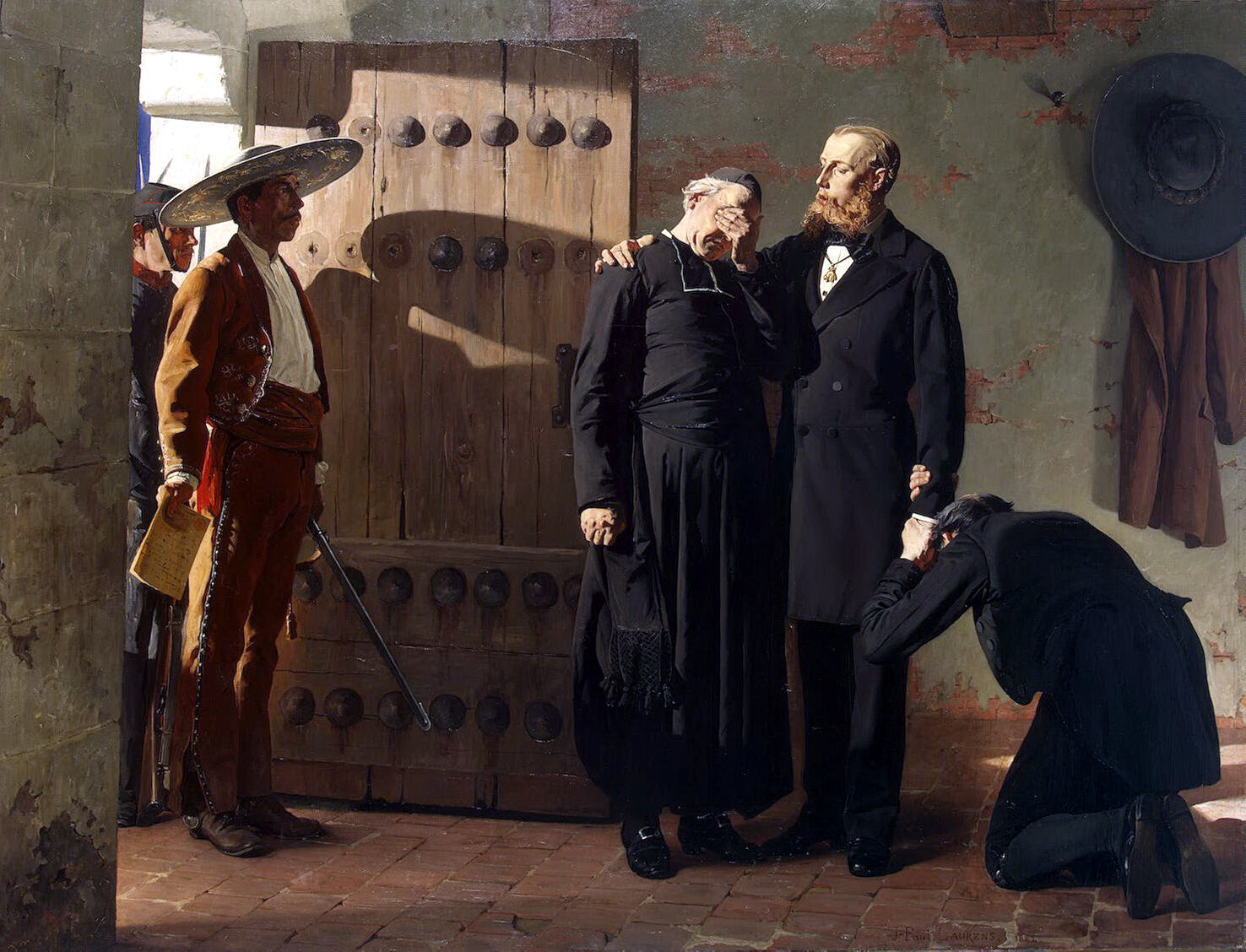
While the American Civil War was wrapping up, Mexico briefly became an empire under the rule of a European monarch. Maximilian von Hapsburg and his wife, Charlotte of Belgium, accepted the Mexican crown and ruled for three short years.
Meanwhile, Benito Juarez—self-declared president—was aligning himself with Abraham Lincoln and assembling a liberal army. Maximilian’s forces met Juarez at Queretaro and were defeated. Soon after, Maximilian and his two top generals faced execution by firing squad.
Industrious Family Films captured this dramatic chapter of history in their second motion picture, Max & Carlota, available to stream on the Industrious Family Theater.
2. Father Miguel Pro Met Execution By Firing Squad In The Shape Of A Cross, Shouting "Viva Cristo Rey!"
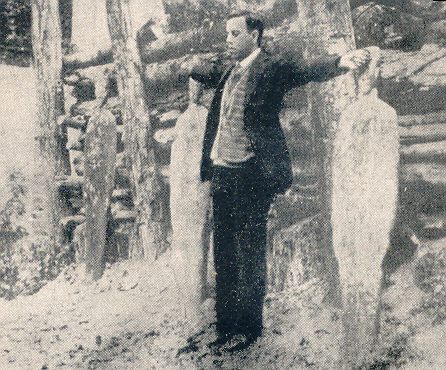
Known as the Scarlet Pimpernel of Mexico, Father Miguel Pro—Jesuit priest and underground hero—slipped past government agents disguised as a plumber, painter, or even a doctor, all to bring the Mass to persecuted Catholics.
On November 23, 1927, he was captured and executed by firing squad—without trial. Arms stretched out in the form of a cross, he faced the rifles and shouted the Cristero battle cry: "Viva Cristo Rey!" (“Long live Christ the King!”)
The Mexican president had the execution photographed to discourage resistance. But far from crushing the Cristero spirit, it only ignited it.
You can listen to a powerful dramatization of his life in Glory Stories.
3. General François de Charette Faced Execution By Firing Squad With Bravado—Ordering The Final Shot Himself
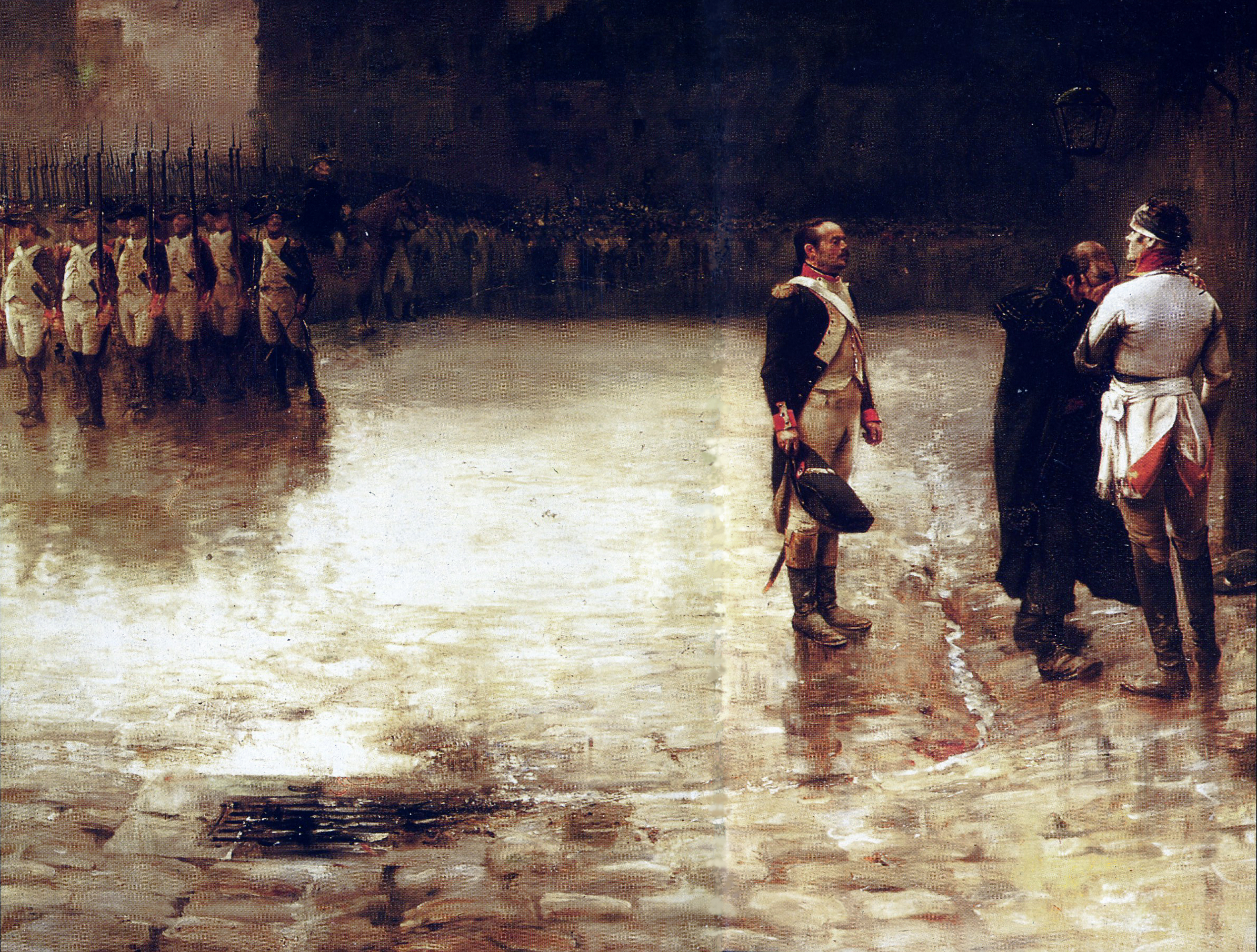
One of the most colorful characters of the Vendée uprising, General Charette initially avoided war—until his own people called him into action. He became a heroic leader in the Catholic counter-revolution against the French Republic, fighting alongside men like Jacques Cathelineau.
Captured in 1796, Charette refused a blindfold and, in a moment of stunning courage, issued the command to fire—himself.
Napoleon once called Charette “a great character and military leader.” Warren Carroll’s The Guillotine and the Cross tells many of these forgotten stories, while Navis Pictures’ The War of the Vendée beautifully portrays this moving chapter in Catholic history.
Charette’s words, though not spoken at his execution, are just as powerful today:
“Our country is ourselves... our villages, our altars, our graves... They say we are slaves of ancient superstitions; and it makes us laugh! But in the face of these demons... we are youth, gentlemen! We are the youth of God, the youth of fidelity!”
Fun Fact: Charette once escaped Paris by pretending to be a revolutionary—while carrying a leg from a butchered Swiss Guard! For more on the Swiss Guard’s bravery, check out To The Last Man: The Heroic Stand of the Swiss Guard in Defense of the King.
4. Claus von Stauffenberg, Hitler's Would-Be Assassin, Faced Execution By Firing Squad Crying “Long Live My Holy Germany!”
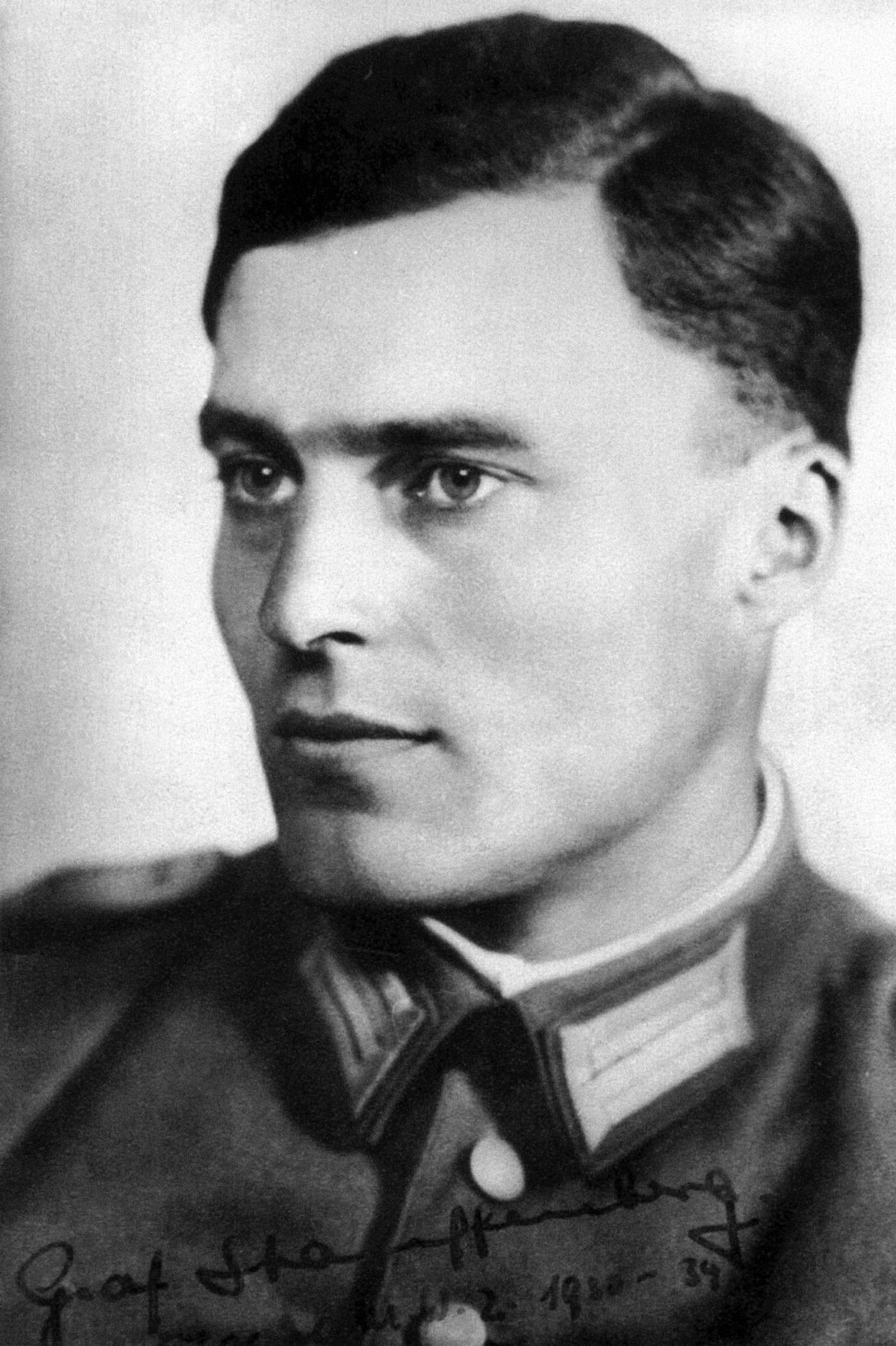
Painted as a traitor by Nazi propaganda, Claus von Stauffenberg was in fact a patriotic German determined to rid his country of Hitler’s tyranny. After two aborted attempts, he finally placed a bomb near Hitler’s feet on July 20, 1944.
The plan failed. Betrayed by his fellow conspirators, von Stauffenberg was arrested and executed by firing squad the very next day.
His last words? “Long live my holy Germany!”
His cousin-by-marriage, Baroness Elisabeth von Guttenberg, recorded these events in her memoir Holding the Stirrup, painting a portrait of von Stauffenberg as a family friend and true German hero.
5. Joseph Mary Plunkett Faced Execution By Firing Squad Just Hours After Marrying His Sweetheart
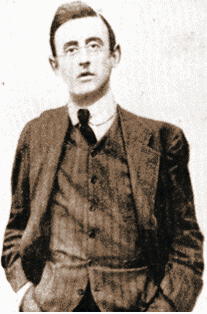
A story begging to be made into a historical short film, Joseph Mary Plunkett’s life is immortalized in the haunting Irish ballad Grace.
Plunkett, a poet and one of the leaders of the Easter Rising, was captured and imprisoned in Dublin’s Kilmainham Jail. On May 4, 1916, mere hours before his execution by firing squad, he married his childhood love, Grace Gifford, in the prison chapel.
They were only allowed to speak during their vows. That 15-minute ceremony was their entire married life.
Later, Plunkett penned the lyrics to “Grace,” a song that still brings tears to listeners around the world. Here's a taste of those lyrics:
Oh, Grace, just hold me in your arms and let this moment linger,
They’ll take me out at dawn and I will die...
Jim McCann of The Dubliners delivers a moving performance of the song—worth a listen.
6. Tsar Nicholas II And The Romanov Family Were Secretly Executed By Firing Squad—Together
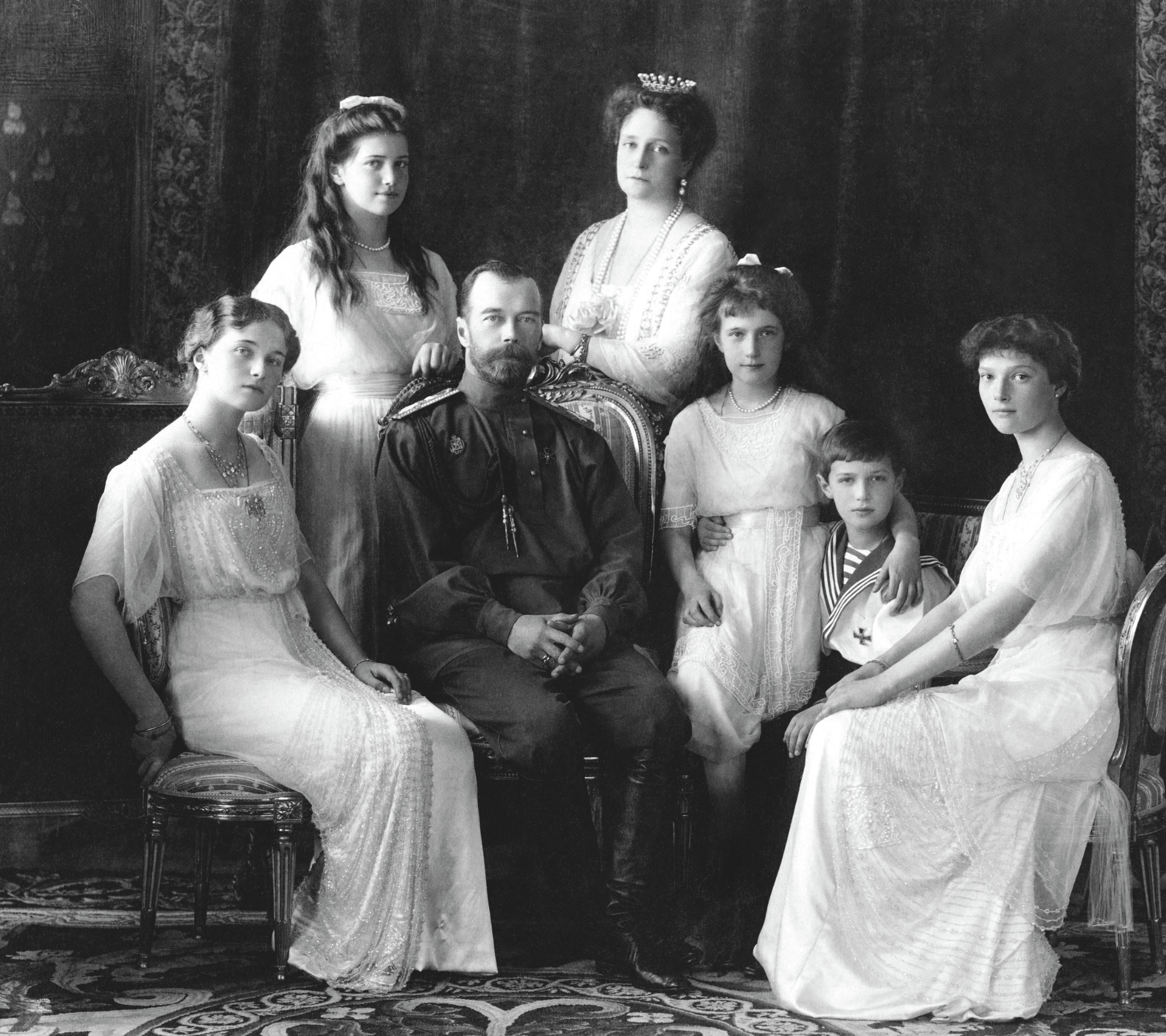
One of the saddest executions by firing squad was the murder of Russia’s last imperial family. When the Bolsheviks seized power in 1917, Tsar Nicholas II abdicated in favor of his brother—who then abdicated the next day.
The family was placed under house arrest and moved multiple times. In July 1918, they were ushered into a basement and executed by firing squad—Nicholas, Alexandra, their four daughters, and young son Alexei.
Tragically, there was no trial, no warning, no final words recorded. But one noble detail remains—they died together, as a family.
Watch Industrious Family’s The 6 Deaths of Rasputin, available on the Industrious Family Theater. It ties into the Romanov downfall and explores how leaders fall when they surround themselves with flatterers. Also, 20th Century Fox's Anastasia is a great watch.
For further reading, Warren Carroll’s 1917: Red Banners, White Mantle provides a month-by-month account of the revolution. The Last of the Tsars is also a fascinating documentary on this imperial tragedy.
These six courageous individuals met death by firing squad with courage, dignity, and a memorable last stand. Whether martyrs, monarchs, poets, or patriots—they all remind us that how one dies can sometimes be just as powerful as how one lives.
Subscribe To Our FREE Email Newsletter:
Our Mission
We believe storytelling has the power to shape souls. In a world where mainstream media often undermines faith and virtue, we are dedicated to reclaiming the art of filmmaking for Christ and His Church. Our mission is simple yet bold: to populate the movie industry with good, Catholic films that inspire, uplift, and ignite a love for truth and beauty.
Populating the movie industry with good, Catholic films that inspire, uplift, and ignite a love for truth and beauty.




